Mold can grow in your home without you knowing about it. It can hide behind walls, in the attic, or in other out-of-the-way places so that there are no visible indications. With this hidden mold, you can have serious health concerns for people who are simply exposed to mold spores in the air. This is one situation where "what you see is what you get" does not apply! Mold treatment locates and removes significant mold growths in homes to protect people who are exposed to the mold. While mold treatment is always appropriate when there is confirmed mold growth, mold inspection is also often used to check properties for mold in connection with real estate transactions. Due to the harmful impacts of different types of mold, Baltimore homeowners should contact professional mold removal aid immediately if there is a suspicion of mold.
Mold needs food, water, air, and temperature to grow. Dead organic materials like wood, paper, and textiles nourish mold. Mold can also eat paints and glues. Mold needs water, although certain species can receive it from wet air above 70% relative humidity.
Most germs thrive at average temperatures. Below 40°F, mold may cease growing, but it will resume once it warms up, provided there is food and water. Above 140°F, mold spores may be killed. In between those two temperatures, you will find a wide range of our normal temperatures that support mold growth. This shows why you need professional mold removal.
Knowing the indications of mold can be complicated. Notable mold growth outside your walls indicates likely mold growth within. However, mold growth inside walls is usually hidden. Mold can grow inside walls without visual indicators. Therefore, it's crucial to locate and remove it.

If you suspect mold growth, the first thing you should do is call a reputable mold remediation company.
Here are some of the main reasons people suspect that mold might be a problem in their property:
Mold develops in 70% of U.S. homes, and mold exposure is unhealthy. Mold can infect you and your family and threaten your house.
Mold spores can worsen breathing issues and induce allergic reactions. Sore throat, coughing, sneezing, wheezing, eye pain, and runny or stuffy nose are symptoms. Mold can enter your lungs and trigger serious lung problems.
Mold can worsen asthma in children, according to AAAAI (American Academy of Allergy Asthma & Immunology) studies. The elderly, those with weak immune systems, and those with long-term lung illnesses are also more susceptible to mold.
Mold can impair your home's structure. Wallpaper, paint, carpets, tiles, flooring, beams, and frames can be damaged. Mold can eat away relentlessly at these elements of your home.
Mold becomes more challenging to remove over time. In extreme circumstances, substantial areas of your home may need demolition, repair, and rebuilding. Mold detection and cleanup should be your top priorities.
The FDP Mold Remediation of Baltimore team will handle the entire process on your premises. Our Baltimore mold removal firm is experienced and licensed to handle any mold problem, including black mold removal. We can repair any property issue.
Among Baltimore's best mold removal experts, our firm offers complete solutions that restore your house swiftly.
Your job is to call the experts. Let us handle the rest. Call 877-421-2614 immediately.
Getting rid of mold is essential for both personal health and the security of one's house. Mold can trigger allergic reactions, exacerbate respiratory problems, and harm the structure of dwellings. It is essential to take quick action in the face of mold infestations.
Mold needs food, liquid, oxygen, and just proper temperatures to flourish. It requires moisture to survive, and its diet consists of organic and specific synthetic components. The typical indoor environment temperatures are ideal for most mold strains' growth.
Finding mold can be difficult in some cases. Musty scents, moist areas, discolorations, and health problems are all indicators of mold growth. It is suggested that you get professional assistance for precise identification and removal.



